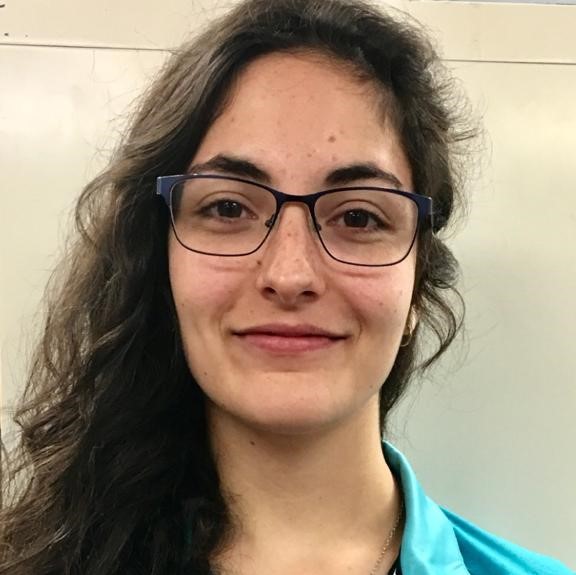
Meet Camila, who believes engineering is one of the most versatile fields of study.
Name
Camila A. Correa Jullian
Year
First Year in ENRE MS program. I am a Graduate Assistant in the SyRRA lab.
Advisor
Dr. Katrina Groth
Research Interest
Prognostics and Health Managament (PHM), Renewable Energy Systems, Reliability Analysis in Solar and Hydrogen Systems, Machine Learning
Dissertation Topic
Development of a PHM framework for Liquid Hydrogen fueling on site storage technology
What drew you to engineering?
For me, engineering is one of the most versatile areas that could exist, with wide-ranging applications which can shape the day-to-day for all of us, branching between scientific research and practical applications. I'm particularly drawn to energy systems and renewable energy technologies, and by studying engineering I believe that we can develop and deploy clean energy applications with obvious benefits for both us and the environment. I also enjoy the physics behind natural phenomena, as well as the scientific yearning to explain the world through maths and dynamic systems.
What made you decide to come to UMD and the ENRE Program?
I'm very passionate about renewable energy technology and interested in furthering their use in everyday life. I've worked on solar thermal and photo-voltaic systems, studying issues related to their operation and maintenance management. Knowing the challenges most renewable technologies must face, I was particularly interested in how reliability affects them in a technical sense, as well as in their image and deployment. Many times I was faced with people saying "Renewables are good and everything, but how can you make sure they can keep up and not fail?" During my undergraduate degree I had often heard that practical engineering applications were mainly focused on maintenance management in my country, but only during my last year I came across a reliability-related course. There, I could see that reliability engineering offered me a way to explore different techniques on how risk is quantified and managed, with the purpose of reducing the mistrust towards these technologies. Thanks to that undergraduate course, I also learnt that UMD is home to one of the best programs in Reliability Engineering, combining the study of both physics-based failure analysis and modern data-driven techniques, representing a huge potential for new and practical applications.
What do you want people to know about Reliability Engineering that they may not know?
When people ask me what does Reliability Engineering means I usually try to explain that it is a field in Engineering which studies how, when and why things fail and how do we keep them from failing at critical times. It also gives you a different perspective when designing and analyzing engineering systems, and what it takes to make them safe and trustworthy. Decision-making is a critical concept for this area, and entails much less number-crunching algorithms and more logic, physics and systematic-based thinking that it seems. I think the aspect that I most enjoy about this area is that it combines a lot of different engineering concepts (physics, data collection, system analysis) from design to operation of a system.
What is a fun fact about yourself?
I'm from Chile, love cats, enjoy sunny weather and like to cook a lot!
Top